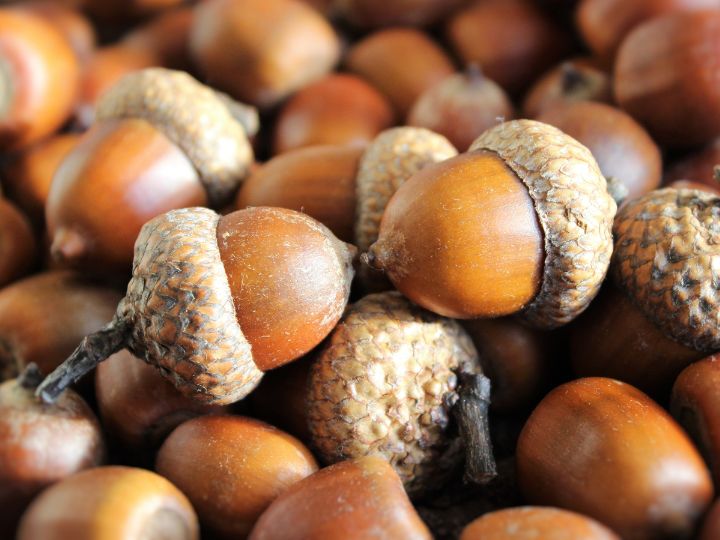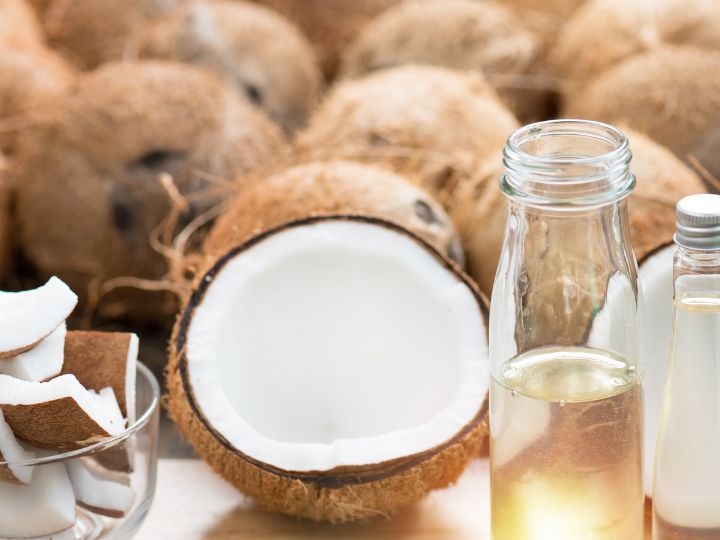Goats are known for their voracious appetite and ability to eat a wide variety of plants. As both a common sight in rural settings and an increasingly popular option for urban homesteaders, many goat owners may wonder if their goats can safely consume acorns. Acorns, the nut of the oak tree, are abundant in many parts of the world and could potentially serve as a food source for these animals.
There are several factors to consider when determining whether goats can eat acorns. Not all acorns are created equal, and their nutritional composition and properties may vary depending on the species of oak tree. Additionally, the palatability and safety of acorns as a food source for goats can be influenced by the specific preferences and digestive systems of individual goats.
Understanding the potential benefits and risks associated with feeding acorns to goats is essential for owners seeking to provide the best possible diet for their animals. In doing so, we can ensure the well-being of the goats and acquire the necessary knowledge for responsible animal care.
Acorns and Goats’ Diet
What Do Goats Generally Eat?
Goats are known as browsers, meaning they prefer to eat leaves, twigs, and shrubs. They are very versatile in terms of their diet, which includes hay, grass, and other plant materials. Goats also need a balanced diet, so they will consume grains and supplements to meet their nutritional needs. These animals are known for their curious and adventurous eating habits, often sampling a wide variety of plants and other materials.
Can Goats Eat Acorns?
While goats are known for their diverse diet, acorns are not the best option for them. Goats can consume a limited amount of acorns, but moderation is crucial. Too many acorns in a goat’s diet can lead to health problems, such as kidney issues and poisoning.
The toxic component in acorns is a substance called tannic acid. It can cause digestive issues, bloating, and potentially severe health problems if consumed in large quantities. There are other risks associated with acorns as well, such as choking hazards and intestinal blockages.
Given these potential hazards, it is best to limit the consumption of acorns in a goat’s diet. Instead, focus on providing a healthy and balanced diet with a variety of plant materials, grains, and supplements. This ensures that goats receive the nutrients they need to thrive and maintain their overall health.

Effects of Acorns on Goats
Nutritional Value of Acorns
Acorns can provide some nutritional benefits for goats. They contain carbohydrates, fats, proteins, and minerals like calcium, phosphorus, and potassium. However, the nutritional value of acorns varies depending on the species of oak tree they come from. Goats may enjoy munching on acorns as a supplemental food source, but it should not be relied upon as their primary source of nutrition.
One potential benefit of acorns in a goat’s diet:
- They can serve as a supplemental seasonal food source when other food options might be scarce.
Potential Health Risks
Despite their potential nutritional benefits, there are also risks associated with feeding goats acorns, particularly in large amounts. Acorns contain tannins, which are compounds present in several plants that can be toxic to animals when consumed in large quantities.
Some potential health risks from the consumption of acorns by goats include:
- Tannin toxicity: High levels of tannins in acorns can lead to poisoning, kidney damage, and possibly death in goats. Symptoms of tannin toxicity in goats may include loss of appetite, difficulty breathing, and diarrhea.
- Choking hazards: Whole acorns may pose a choking risk for goats, especially if they are consumed rapidly. It is essential to ensure that goats have access to fresh water to help them swallow the acorns safely.
- Blocking nutrient absorption: The tannins in acorns may interfere with the absorption of nutrients, including proteins and minerals, which can negatively affect the overall health of the goat.
In conclusion, while acorns can offer some nutritional value, they should be fed to goats in moderation due to potential health risks. The availability of alternative food sources, such as commercial goat feed, should be considered to provide a balanced diet that will promote a goat’s overall health and well-being.

Image Credit: Canva
Preventing Acorn Consumption
Fencing and Grazing Practices
To prevent acorn consumption by goats, proper fencing and grazing practices should be followed. It is essential to fence off oak trees in the pasture to restrict goats’ access to acorns. Goats are agile and can easily reach acorns, so it is crucial to make sure the fencing is secure and high enough to avoid any potential hazards.
Rotational and managed grazing practices can also benefit goats by reducing the chances of acorn consumption. By rotating the goats periodically, it helps maintain the pasture’s health and decreases the likelihood of goats coming in contact with acorns.
Alternative Food Sources
Offering alternative food sources for goats is another effective way to reduce acorn consumption. Ensure goats have access to nutritious forage such as:
- Alfalfa hay
- Grass hay
- Forage crops like oats, rye, or clover
Additionally, supplementing their diet with minerals and vitamins is vital because it ensures optimal health and can decrease the chances of goats consuming acorns to seek nutrients. Some essential supplements include:
- Calcium and phosphorus
- Trace minerals (e.g., copper, zinc, selenium)
- Vitamin E
Remember, providing proper nutrition and grazing practices will help prevent goats from consuming acorns and maintain their overall health.
Conclusion
In summary, goats can indeed eat acorns, but it should be done with caution. Acorns contain tannins, which can be toxic to goats if consumed in large quantities. To avoid potential health issues, it is essential to provide sufficient alternative forage and monitor the acorn intake of the goats.
Additionally, while some goat breeds are more tolerant to the tannins in acorns, it is still crucial to keep an eye on their consumption. An excess of acorns in a goat’s diet can lead to gastrointestinal distress and even life-threatening kidney damage.
To mitigate the risks associated with acorns, consider:
- Limiting access to areas with acorns: Goat owners can restrict their goats’ access to oak trees or acorn-laden areas.
- Balancing diet: Ensuring a balanced diet by including additional forage options such as hay and browse materials to reduce the reliance on acorns for sustenance.
- Crushing or boiling acorns: Breaking down the acorns can help neutralize the tannins, thus making them less harmful to goats.
In conclusion, although acorns are not a primary food source for goats, they can be safely consumed in limited quantities with proper care and attention. Responsible management practices are key to ensuring healthy, happy goats without any adverse effects from acorn consumption.
Frequently Asked Questions
Becky is a fervent wildlife enthusiast and pet care expert with a diploma in canine nutrition. Her love for animals stretches beyond the domestic, embracing the wild tapestry of global fauna. With over a decade of experience in animal welfare, Becky lends her expertise to OutlandishOwl through insightful articles, captivating wildlife information, and invaluable guidance on pet nutrition. Her work embodies a deep commitment to understanding the intricate lives of animals and a passion for educating others on sustaining natural habitats. Becky's hands-on conservation efforts and her knack for translating complex dietary science into practical pet feeding tips make her an indispensable voice for creatures great and small.



